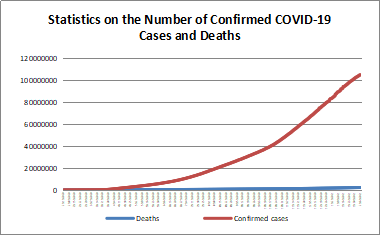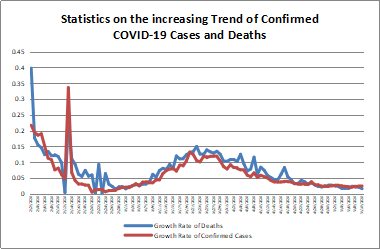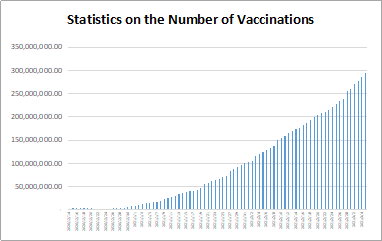APEC Held Senior Officials Meeting Focusing on Openness, Connectivity and Balance Among Member Economies in Post-pandemic Ear
Time:2022/03/07 BJT
1. Key concerns
On February 24, 2022, Asia-Pacific Economic Cooperation (APEC) held the Senior Officials Meeting. The Meeting pushed forward APEC’s work to reinvigorate regional economic integration, reconnect the region and reassure the sustainability for future growth guided by the APEC 2022 theme of“Open. Connect. Balance”
During the first APEC Senior Officials’ Meeting in 2022, member economies deliberated approaches for refreshing the discussions on the Free Trade Area of the Asia-Pacific (FTAAP) post-pandemic and the reopening of safe and seamless travel in the region, explored the bio-circular-green (BCG) economic model, reiterated the critical role of WTO as well as emphasizing the importance of utilization of digital technologies in services sector.
Firstly, the meeting deliberated the approaches of refreshing the discussion on FTAAP and the regional economic integration. Just as Thailand’s Permanent Secretary of Foreign Affairs, Thani Thongphakdi stated at the meeting, while differences in positions of member economies on the above issues, there are opportunities for cooperation, giving today’s changing landscape and emerging challenges especially for the COVID-19 pandemic. It is noted that issues including health, environment, sustainability and digital economy need to be considered for future work on regional economic integration.
Member economies then reiterated the importance of trade as a path towards economic recovery, emphasizing their strong support for the role of the multilateral trading system with WTO as its core and the importance they attach to its role in the international community. At the meeting, some delegates suggested APEC establish the communication platform for the ministerial conference on its 12 substantive and meaningful topics including issues of trade and health, environment, agriculture, fisheries subsidies and the WTO reform, which is scheduled for this June.
Lastly, member economies also called for a continued and intensified effort to improve APEC’s services sector through the utilization of digital technologies and the APEC Services Competitiveness Roadmap as well as by continuing discussions on environmental products and services. Member economies concluded that services are vital to most economies as they provide the bulk of economic output and employment. and APEC should work to ensure an open and predictable environment for access to services market.
2.Briefing on COVID-19 Pandemic(Issue No.182)
According to WHO statistics, calculated numbers of confirmed COVID-19 cases and deaths reached 435,626,514 and 5,952,215 by March 1, 2022. The US, India, Brazil, France and the UK were the five countries (regions) with the highest number of new confirmed cases in the past seven days. The US, Brazil, India, Russia and Mexico were the five countries (regions) with the highest number of new deaths in the past seven days.


https://covid19.who.int/
On February 25, 2022, the UN General Assembly held a debate to call on member states to strengthen the global solidarity to vaccinate the entire world against COVID-19. Statistics from Our World in Data, an online research site of the University of Oxford, presented that 10,772,008,943 doses had been administered globally by February 28, 2022. On February 25, 2022, the president of UN General Assembly, Abdulla Shahid highlighted at a high-level debate on universal vaccination that member states face the persistent inequity in access to these lifesaving medicines and the international community has so far failed to protect everyone against the COVID-19. At the debate, Shahid noted that although more than 10 billion vaccines have so far been administered around the world - enough to inoculate every person on the planet, about 83% of the population of the African Union has yet to receive a single dose. It’s not okay that 27 countries have vaccinated less than 10% of their populations while others are rolling out the boosters or completely removing the dose limit, said Shahid. The UN Secretary-General António Guterres also called on countries to strive for global solidarity at the meeting. Specifically, priority should be given to global access mechanisms for COVID-19 vaccines and to ensure full and fair access to the vaccines. Guterres encouraged countries to set up vaccine dose-sharing, as well as donations to the COVAX led by WHO. The President of the UN Economic and Social Council, Collen Vixen Kelapile, addressed the dichotomy at the meeting. On the one hand, the crisis shattered lives and livelihoods, and also wiped out advances in achieving the Sustainable Development Goals. On the other hand, Whether and the extent to which we are able to ensure fair and equitable access to the vaccines in the globe will determine whether the world can truly overcome the pandemic, embark on a sustainable recovery and achieve the Sustainable Development Goals.

https://ourworldindata.org/covid-vaccinations
In terms of the restrictions taken by countries (regions), there are different levels of measures adopted against COVID-19. Some countries (regions) gradually relaxed their prevention measures while others started new vaccination programs. In America, the US Centers for Disease Control and Prevention announced new guidelines on February 25 as part of its latest guidance on dealing with COVID-19, which include recommendations for schools. Under the guidelines, approximately 72% of the population live in communities where indoor face coverings are no longer recommended. In Europe, Italy announced that from 1 March it will relax its pandemic restriction measures and allow people from non-EU countries to enter the country for travel, but travellers will still have to comply with pre-entry testing requirements. Spain announced that travellers from third countries who in the last 180 days have been infected from COVID-19, and have recovered from it can now enter the country with the recovery certificate. Cyprus announced that travellers who enter Cyprus, regardless of their country of departure, will be required to provide a certificate issued by the EU DCC or specific competent authority in a third country certifying that they have received all the necessary doses of vaccine or have recovered from COVID-19. In Oceania, Australia announced that from March 4 the density limits will be removed for weddings, funerals and number of people allowed at homes, as well as in food courts, hair salons, gyms, private hire venues and universities. At the same time, the bans on school visits, short trips to schools and conferences will be lifted. In Asia, in a regular press conference on February 28, Jeong Eun-kyeong, director of the Korea Centers for Disease Control and Prevention, said that discussions are underway to implement entry exemptions for people who have completed the full course of vaccination against COVID-19. In the Philippines, acting presidential spokesman Nograles said on February 27 that the alert level for the pandemic in the Philippine capital Metro Manila and 38 other areas would be lowered to level 1 from March 1 to March 15. It is reported that the country currently has five levels of pandemic alert, with level 5 being the highest and level 1 the lowest.


